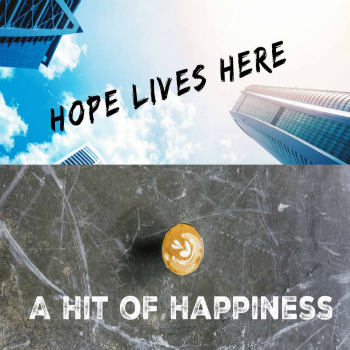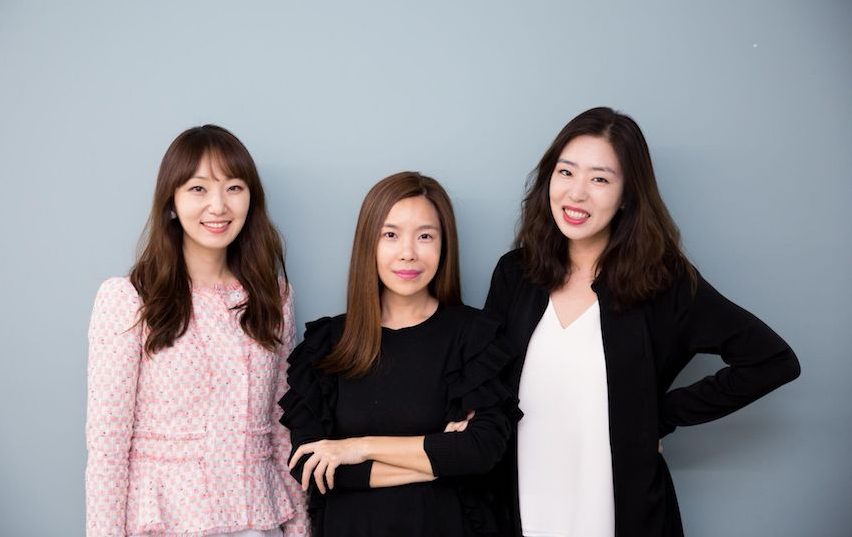With the terms “natural” and “organic” thrown around in both the beauty and feminine care world, it’s hard to discern which products are actually safe. So, these three female entrepreneurs, all of whom originally hail from South Korea, decided to do the research, have vetted natural products free of hazardous agents created from organic cotton grown in Texas, and created proprietary technology to help women feel safer and more at ease about what the put in their bodies. To boot, it’s better for the environment, too (they say don’t flush tampons, but it happens, and of course, everything ends up in a landfill, and we know how that story goes), and they’re hoping to bring the advancement of feminine health—and professional leadership—to their country of origin.
“We hope to make a change by fostering an open, safe, uplifting community for women around the globe to freely talk about reproductive health, discuss menstrual experiences and ultimately empower one another.”
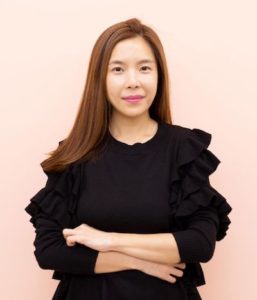
Throughout her career, Aness An has consistently remained an advocate for women and the issues that they face. As a journalist in Korea reporting on the stories of women (and writing five best-selling books on women’s lives and empowerment issues) she felt a pull to do more to directly impact women’s well-being. After having her first child, she became more conscious of using healthy products.
Binna Won, who moved to the US from Korea in 2011, began to experience lots of skin irritation and cramps using the pads made here in the U.S. She tried organic pads made in Europe, which helped with irritation, but, she says, weren’t absorbent at all. She was so frustrated with the lack of quality feminine care, she ended up bringing back whole suitcases-worth of Korean pads whenever I traveled back home, and that got her
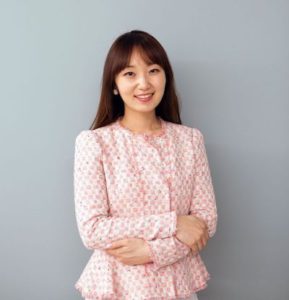 thinking—what if she could bring that technology to the States?
thinking—what if she could bring that technology to the States?
Yanghee Paik a career woman, rallied behind the mission of educating and empowering women to make safe and healthy choices for their bodies. In addition to the health aspect, female leadership is another topic Yanghee has been passionate about. Born in Korea, she also spent time in France and the US growing up, and often wondered why Korea had “only few successful female leaders” in the country.
HH: It seems that more companies are popping up creating organic cotton tampons. Is this something that’s better for the environment of our bodies, as well as the environment around us?
Organic cotton period products are better than conventional products both from a health and an environmental perspective. As for pads, conventional products found in most drugstores are made with plastic and contain so many hidden toxic chemicals. These companies aren’t regulated by the FDA, so they don’t include ingredients on packaging. Women’s Voices conducted a study that found a number of toxic ingredients in one of the leading brand-name pads—carcinogens, toxicants, chemicals, the list goes on. These ingredients were found to irritate skin, disrupt pH balance, increase unnecessary odor. Organic cotton pads like ours, which are made with 100% certified organic cotton grown here in the States, have been reported to reduce irritation, cramps and allergic reactions.
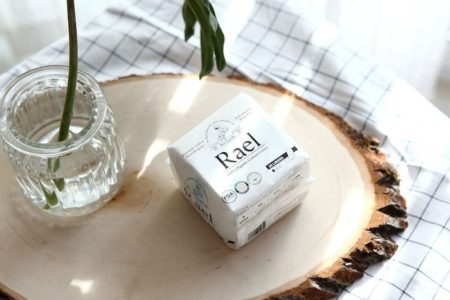
They’re also significantly more biodegradable than conventional pads since they’re mainly made of natural materials. The same goes for tampons. Conventional tampons are made with ingredients like viscose rayon and other synthetics. The core is often bleached with chlorine and contains pesticides. This is why they’re so white in color. Organic cotton (cardboard and non-applicator) tampons like ours are 100% biodegradable. I consider empowerment one’s power to make her own decisions and the process of becoming stronger and confident. Empowerment can only happen when you feel safe and secure. In this context, safety means you have the knowledge to own your decisions, you feel secure enough to have your voice and share your views with others, and you have the physical strength and health to push forward. In case of organic pads & tampons, safety would mean women’s awareness of the toxic chemical issues with the conventional products and their decisions to choose what’s best for their bodies and the environment.
HH: The beauty market is saturated with the words all natural and organic. What did you find out about many ingredients we presume to be safe?
I was actually shocked to find that most beauty products—even those that claim to be natural and organic—contain parabens, alcohol, silicone, artificial fragrance, benzeophenone, pigment, phenoxyethanol, PEG, talc, the list goes on. We created our facial sheet masks to provide healthy alternatives free of these ingredients. We worked with our R&D team in Korea, known for its revolutionary K-beauty, to source botanical ingredients so our beauty products are not just natural, but effective.
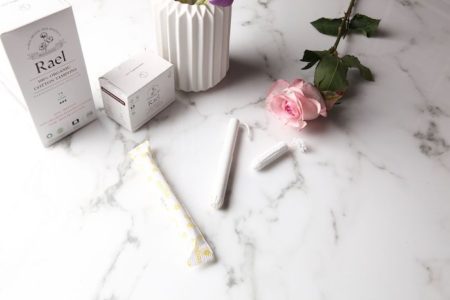
For example, our Vitamin C sheet masks contain fruit extracts to brighten skin; pomegranate & mulberry extracts to protect skin and manages uneven skin tone; fig fruit extract, which is rich in vitamins and minerals, to help skin cell production and minimize damage from excess sun exposure.
HH: Tell me about the work you are doing to help women in South Korea.
Our effort to help Korean women—to make quality, healthy feminine care affordable in South Korea—is now picking up speed. South Korea might be a well-developed economy known for its advanced technology (and mind-blowing Kpop!), but the culture there is still very conservative and patriarchal. We recently partnered with a nationwide period conference, the first public event of its kind, to tackle these stigmas that women and men have surrounding menstruation. When we launched here in America, our goal was to educate and empower women with healthy alternatives to conventional period products. As we’ve grown, so has our mission.
We don’t just want to provide healthy pads and tampons; we hope to make a change by fostering an open, safe, uplifting community for women around the globe to freely talk about reproductive health, discuss menstrual experiences and ultimately empower one another. My co-founders and I are three Korean immigrants ourselves, and having launched a successful brand here in America, we want to do our best to inspire and be role models for young Korean women who aspire to be entrepreneurs themselves.
